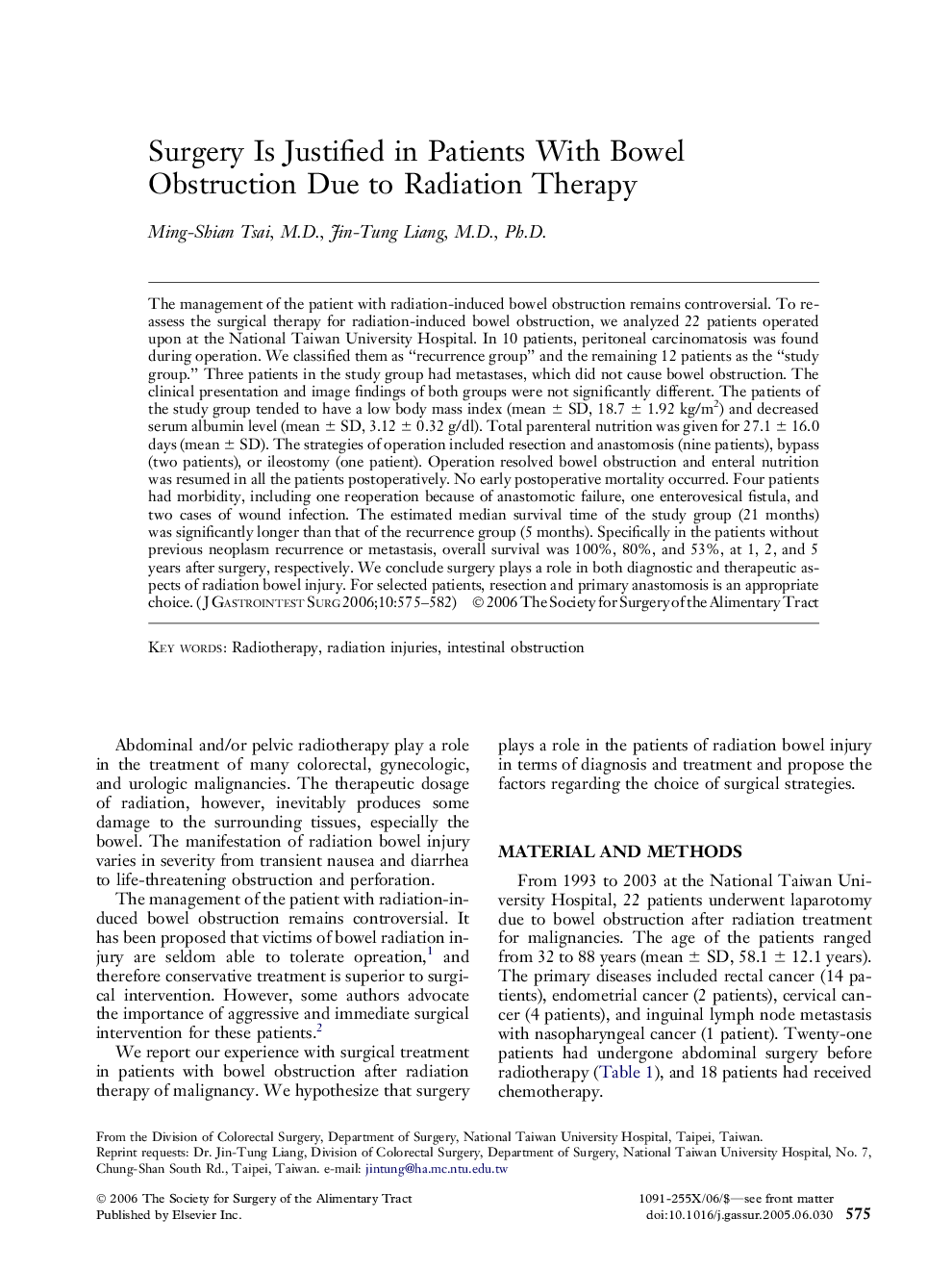| Article ID | Journal | Published Year | Pages | File Type |
|---|---|---|---|---|
| 4297211 | Journal of Gastrointestinal Surgery | 2006 | 8 Pages |
Abstract
The management of the patient with radiation-induced bowel obstruction remains controversial. To reassess the surgical therapy for radiation-induced bowel obstruction, we analyzed 22 patients operated upon at the National Taiwan University Hospital. In 10 patients, peritoneal carcinomatosis was found during operation. We classified them as “recurrence group” and the remaining 12 patients as the “study group.” Three patients in the study group had metastases, which did not cause bowel obstruction. The clinical presentation and image findings of both groups were not significantly different. The patients of the study group tended to have a low body mass index (mean ± SD, 18.7 ± 1.92 kg/m2) and decreased serum albumin level (mean ± SD, 3.12 ± 0.32 g/dl). Total parenteral nutrition was given for 27.1 ± 16.0 days (mean ± SD). The strategies of operation included resection and anastomosis (nine patients), bypass (two patients), or ileostomy (one patient). Operation resolved bowel obstruction and enteral nutrition was resumed in all the patients postoperatively. No early postoperative mortality occurred. Four patients had morbidity, including one reoperation because of anastomotic failure, one enterovesical fistula, and two cases of wound infection. The estimated median survival time of the study group (21 months) was significantly longer than that of the recurrence group (5 months). Specifically in the patients without previous neoplasm recurrence or metastasis, overall survival was 100%, 80%, and 53%, at 1, 2, and 5 years after surgery, respectively. We conclude surgery plays a role in both diagnostic and therapeutic aspects of radiation bowel injury. For selected patients, resection and primary anastomosis is an appropriate choice.
Related Topics
Health Sciences
Medicine and Dentistry
Surgery
Authors
Ming-Shian M.D., Jin-Tung M.D., Ph.D,
